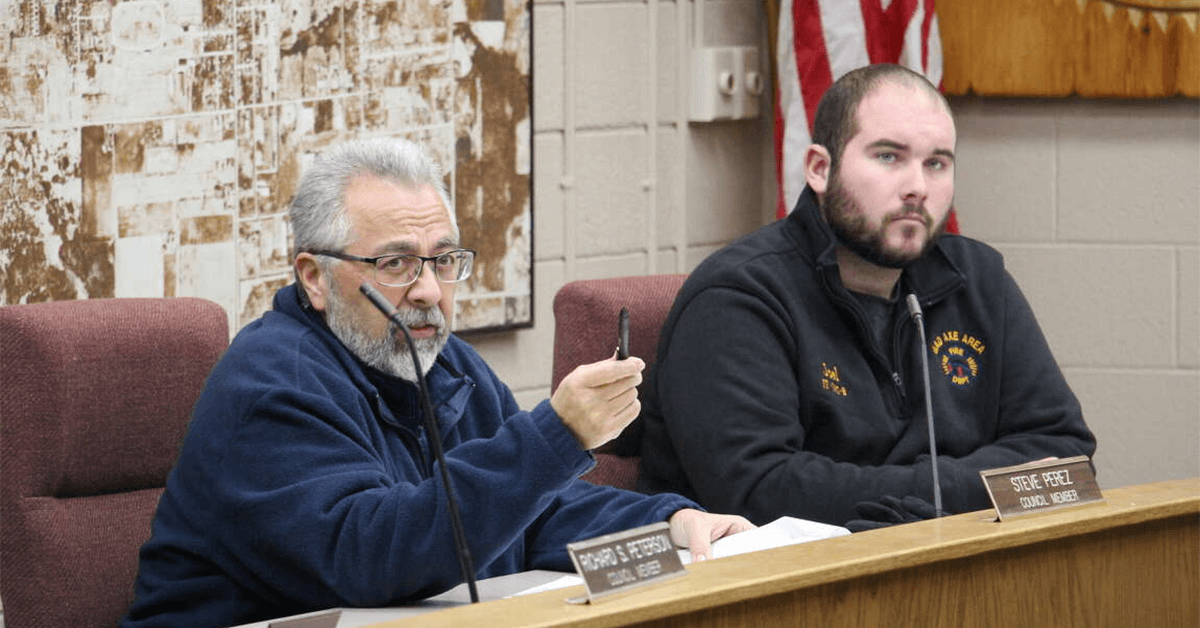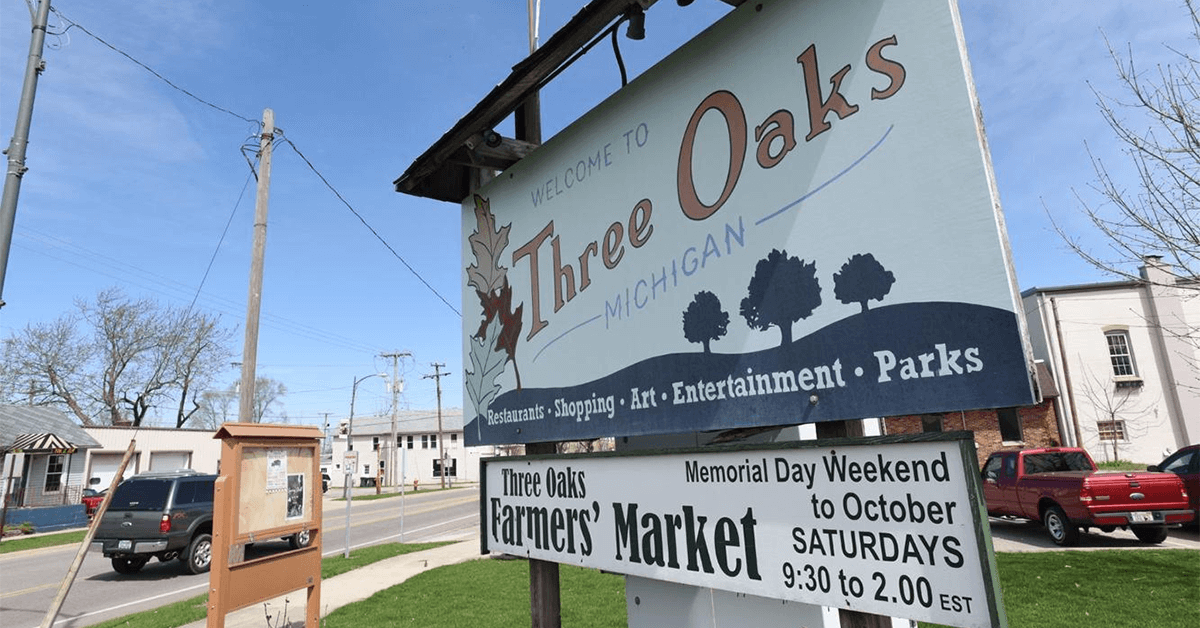Governor Whitmer's Budget Plan Enhances Support for Michigan's Cannabis Sector

In a recent announcement, Cannabis Regulatory Agency (CRA) Executive Director Brian Hanna expressed his support for Governor Gretchen Whitmer's Fiscal Year (FY) 2025 Executive Budget Recommendation. This budget, praised for its balanced and fiscally responsible approach without imposing new taxes on Michigan residents, earmarks additional support for several of the CRA's pivotal initiatives. These initiatives are aimed at bolstering the state's cannabis market and include a range of measures from regulatory reforms to enhanced enforcement efforts against illegal operations.
Key highlights of the budget supporting the CRA's initiatives are as follows:
- The elimination of the monthly subscription fees for licensees to access the statewide monitoring system, reducing the financial burden on legal cannabis businesses.
- Increased support and resources to tackle illicit cannabis activities, aiming to protect the integrity of the state's legal cannabis market.
- Enhanced enforcement and improved workload management within the Licensing Division to streamline operations.
- Shortened wait times for fire safety inspections, thereby increasing safety and compliance efficiency for businesses.
Executive Director Hanna emphasized the importance of these initiatives, stating they are crucial for fostering a thriving, expanding legal cannabis market. By removing the monthly subscription fees for the statewide monitoring system, the CRA aims to invest in the stability and long-term success of Michigan's legal cannabis market. Additionally, the focus on combating illicit activities, bolstering enforcement efforts, and improving safety measures through quicker fire inspections is expected to support the state's licensed cannabis businesses significantly.
Robin Schneider, Executive Director of the Michigan Cannabis Industry Association (MiCIA), also commended Governor Whitmer's budget. Schneider highlighted that the budget addresses several critical needs of the industry, including safety enhancements, reduction in regulatory costs for businesses, and increased profitability for law-abiding operators through stricter enforcement against illegal market activities. Schneider appreciated the CRA's responsiveness to industry concerns and its proactive measures to improve the sector.
This budget represents a significant step forward in Michigan's efforts to regulate and support its legal cannabis industry, with the state showing a commitment to addressing the needs of both businesses and consumers while ensuring a safe, regulated market.
Bad Axe Sets the Stage for Cannabis Business Regulation with New Ordinance Draft

The Bad Axe City Council, in its recent meeting on February 5th, engaged in a significant discussion regarding the inaugural draft of a proposed marijuana ordinance, focusing on the regulation of cannabis businesses within the city. Police Chief Shawn Webber provided a detailed overview of the available licenses under the draft ordinance, highlighting the inclusion of two principal business types: retailers and micro-businesses. He emphasized the potential tax revenue benefits, particularly from these entities, estimating an annual income of approximately $56,000 per license issued.
Retail stores, as outlined, would source their products from distributors, in contrast to micro-businesses, designed to cultivate and produce all goods on-site. The draft proposes a cap of two licenses for each business type, a figure that City Manager Rebecca Bachman noted could be revisited and adjusted to possibly include more varieties of businesses or increase the allowed number.
The dialogue also touched upon concerns related to cultivation facilities, especially in light of public complaints about odors emanating from a facility in Vassar. To mitigate similar issues, it was suggested that micro-businesses, capable of on-site production, be restricted to industrial zones, while retail establishments could be located within business districts. Currently, the ordinance draft does not cover cultivation facilities, reflecting the city's historical focus on retail-based inquiries.
Chief Webber also shared insights from discussions with Bay County law enforcement, cautioning against oversaturating the market with cannabis businesses, a scenario believed to have led to business closures in Bay County due to intense competition.
On the topic of safety, Webber reassured the council that, based on data from surrounding areas, the primary safety concerns associated with cannabis businesses were retail fraud and break-ins, without a significant uptick in overall crime rates. He also highlighted that cannabis businesses are subject to stringent state regulations, ensuring that local enforcement can concentrate on other community matters.
Following the discussion, Bachman indicated that a final draft of the ordinance is underway, with plans to present it for a vote at the council's next meeting. Subsequent steps would involve forwarding the ordinance to the planning commission and organizing public hearings.
Additionally, the council approved an increase in election inspector pay to $16 per hour and an incentive program for water treatment and water operators to obtain additional licenses. However, a request for back pay for an employee was not supported.
The next council meeting is scheduled for February 20th, following a closure on February 19th in observance of Presidents Day.
Bad Axe Businesses and Residents Weigh In on Recreational Marijuana Ordinance

As Bad Axe progresses with the implementation of its recreational marijuana ordinance, local business owners and residents are voicing their opinions on the development. Although the process for businesses to receive licensing and open their doors is still underway, the community's anticipation and concerns highlight a mix of optimism and caution.
Craig and Daisy Harris, proprietors of Pete's Bar, are among the supporters of the ordinance, recognizing the potential financial benefits for the town. "We're all for the passing of the ordinance," Daisy Harris stated, emphasizing their eagerness to see tax revenue generated for Bad Axe. Craig Harris added that their business would likely remain unaffected, as marijuana consumption in bars remains prohibited.
Shar Mohr, the owner of Green Girl Wellness and a vocal advocate for marijuana regulation since Michigan's Proposal 1 passed in 2018, has been actively involved in promoting the ordinance. "Back in December of 2018, when they held the first meeting on this, I was the only citizen to show up in favor of it," Mohr recounted. Her commitment extends beyond advocacy; she has also conducted educational sessions at local libraries to address concerns and provide information on recreational marijuana use, emphasizing the importance of handling substance use disorder sensitively within families.
Mohr and others believe that tax revenue from marijuana sales could significantly benefit Bad Axe, and they argue that public safety concerns are often overstated. Police Chief Shawn Webber, having consulted with law enforcement in other municipalities, reported minimal to no increase in safety incidents, with a slight uptick in retail fraud being the notable exception.
However, not all community members share this optimism. Luke Deming, a local resident, expresses concern about increased access to marijuana, particularly for non-medical use, and the potential risks to children, citing edibles like gummies that could be mistaken for regular candy.
Mike Peterson, another resident, calls for more comprehensive education on marijuana. As a parent, community advocate, and business owner, Peterson sees the necessity of open dialogue about marijuana, emphasizing the responsibility of users to store it safely and the importance of understanding both the benefits and potential drawbacks of its use.
Bad Axe stands out in Huron County as the sole municipality moving forward with a recreational marijuana ordinance, while others, such as Caseville and Oliver Township, have implemented medical ordinances, and Sebewaing Township has established a growing ordinance.
This development in Bad Axe reflects broader conversations happening in communities across Michigan as they navigate the complexities of integrating recreational marijuana within their local economies and social fabrics. The dialogue underscores a community grappling with the balance between economic opportunity, public safety, and the need for education and responsible use.
Unlimited Marijuana Retail Establishments Could Be Coming to Three Oaks Village

The Three Oaks Village Council has signaled its support for a significant change in its local marijuana ordinance, moving towards allowing an unlimited number of retail establishments. This decision came to light during the council's regular meeting on January 10th, when council members were presented with a choice: to maintain the current marijuana ordinance, which caps the number of retail licenses at two and includes a single microbusiness license, or to adopt a revised ordinance that would remove the limit on retail licenses.
Village President Richard Smith highlighted a pressing issue with the existing ordinance, pointing out that the council might need to reevaluate the process for awarding the second retail license. The discussion also brought up concerns about the limited zoning space available in the village for marijuana retail dispensaries along U.S. 12, even with the potential for unlimited licenses.
In response to these discussions, Smith requested that Village Manager Dan Faulkner and Village Attorney Charles Hilmer begin drafting a revised ordinance that would remove the cap on retail establishments. This new ordinance is expected to be ready for review at the February Village Council meeting.
Public feedback during the meeting included concerns from a local property owner about the financial implications of the current 500-foot buffer requirement between parks and marijuana retail locations. The property owner, who owns two properties on Nels Drive, expressed frustration over the ordinance blocking potential offers due to this restriction.
Additionally, the council decided to postpone action on a proposed Marihuana Zoning Ordinance Amendment. This draft document has been sent back to the planning commission to ensure that all proper procedures are followed.
Bear Lake Village on the Verge of Embracing Cannabis Industry

Bear Lake Village, located in Michigan, is actively exploring the possibility of welcoming cannabis businesses into its community. The village's President, Shelly Lynnes, is spearheading efforts to potentially revise local ordinances to permit marijuana sales or transportation operations.
During a council meeting on January 25th, 2024, the council members unanimously agreed to authorize Lynnes to consult with Rob Carson, the Regional Director of Community Development at Networks Northwest, or other relevant experts. This decision marks a significant step towards drafting an ordinance that could pave the way for cannabis businesses in Bear Lake Village.
Lynnes, recognizing the potential benefits of such businesses, noted that Bear Lake already has suitable buildings for this purpose. She highlighted that legalizing cannabis has not led to increased crime or negative impacts on communities. Instead, Lynnes pointed out that it has spurred growth in neighboring towns.
The council's meeting also included input from Trever Johnson of Authentic 231, a cannabis business based in Manistee. Johnson emphasized the economic benefits that a retail cannabis location could bring to the village, such as increased spending and community engagement, especially during local events like lake and music days.
Lynnes also reflected on the evolving public perception of recreational marijuana sales. She cited the growth and positive impacts observed in nearby counties, such as Benzie, Manistee, and Grand Traverse, that have allowed cannabis establishments.
Johnson discussed financial benefits from the Michigan Regulation and Taxation of Marihuana Act. Counties and municipalities hosting marijuana businesses receive annual funds from the state's excise tax on cannabis. For instance, in Fiscal Year 2022, Manistee City received over $259,000, Marilla Township got about $51,800, and Manistee County received approximately $311,000 for their respective licensees. These funds also contribute to the state's school aid and transportation funds, supporting education and infrastructure.
Furthermore, Johnson suggested that Bear Lake Village could explore cannabis transportation operations if a retail outlet isn't feasible. In Michigan, cannabis growers and processors are required to use third-party transport services, licensed through the Cannabis Regulatory Agency, to move their products securely.
This potential shift in Bear Lake Village's stance on cannabis businesses signifies a broader trend of communities reevaluating the role of cannabis in economic development and societal progress.
Marine City Nears Decision on Marijuana Facility Locations with Reduced Setbacks

On January 18th, the Marine City Commission revisited discussions concerning the city's ordinance to license and regulate adult-use marijuana facilities. This followed the approval of the ordinance's first reading in the fall, which proposed a 1,000-foot setback from residential areas, churches, rehabilitation centers, childcare facilities, and schools.
However, during the October 19th, 2023, meeting, the second reading was postponed due to unavailability of Geographic Information Systems (GIS) maps from the county. City Manager Scott Adkins highlighted issues with the 1,000-foot setback, as it left no viable locations for marijuana facilities. Subsequent maps with 750-foot setbacks also did not yield additional property options, leading to the exploration of 500-foot setbacks.
The revised map, showcasing 500-foot setbacks, identified two potential locations for marijuana facilities—one near King Road and West Boulevard, and another by South Parker Street and Thompson Drive. Adkins emphasized that the decision to work with the 500-foot setbacks rests with the commission, and that the ordinance language could be modified accordingly.
During the discussions, Mayor Pro Tem Lisa Hendrick pointed out discrepancies in the zoning of certain areas on the map, noting a mix of industrial and residential designations. Commissioner William Klaassen inquired about the possibility of areas within the original 1,000-foot setbacks. Adkins clarified that although some zones were thought viable, they were disqualified due to their residential usage.
Commissioner Brian Ross raised concerns about the lack of parcels fully within the permissible area, considering the setbacks. Adkins mentioned that lot splits or subdivisions might be necessary, with the ordinance and map being updated to reflect such changes.
City Attorney Robert Davis elaborated on the application process for marijuana facilities, highlighting the need for comprehensive plans covering odor, lighting, security, and other operational aspects. He also stressed the importance of compliance with state regulations and detailed site planning requirements.
The commission, acknowledging potential changes in property usage and sales, discussed the need for updating the map as necessary. Davis noted that each application would require a review of the buffer zones.
Concluding the session, Hendrick moved to bring the ordinance back for a second reading with the 500-foot setbacks. The motion was approved with a 6-1 vote, with Commissioner Klaassen dissenting.


 Helpful Links
Helpful Links